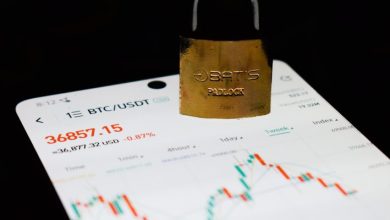How Political Events Around the World Influence Crypto Markets

- The Impact of Government Regulations on Cryptocurrency Prices
- Global Trade Agreements and Their Effect on Cryptocurrency Values
- Election Results and Market Volatility in the Crypto Space
- Political Unrest and its Ripple Effects on Digital Assets
- The Role of Central Banks in Shaping Cryptocurrency Trends
- Geopolitical Events and Their Influence on Crypto Market Sentiment
The Impact of Government Regulations on Cryptocurrency Prices
Government regulations play a significant role in influencing the prices of cryptocurrencies. When governments around the world announce new regulations or policies related to cryptocurrencies, it can lead to a surge or drop in prices. The impact of government regulations on cryptocurrency prices is a reflection of the market’s response to changes in the regulatory environment.
Regulations can affect the demand and supply of cryptocurrencies, as well as investor sentiment. For example, if a government announces a ban on the use of cryptocurrencies for transactions, it can lead to a decrease in demand and, consequently, a drop in prices. On the other hand, if a government introduces regulations that provide clarity and legitimacy to the crypto market, it can boost investor confidence and drive prices up.
Investors closely monitor government actions and statements related to cryptocurrencies to anticipate potential price movements. The regulatory landscape is constantly evolving, with different countries taking varying approaches to regulating cryptocurrencies. This uncertainty can lead to volatility in prices as market participants react to the latest regulatory developments.
Global Trade Agreements and Their Effect on Cryptocurrency Values
Global trade agreements play a significant role in shaping the values of cryptocurrencies. When countries engage in trade agreements, it can impact the demand for digital assets such as Bitcoin and Ethereum. These agreements can either promote or hinder the adoption of cryptocurrencies, depending on the regulations and policies put in place.
One of the key factors that can affect cryptocurrency values is the level of regulatory clarity provided by global trade agreements. When countries establish clear guidelines on how cryptocurrencies will be treated within their borders, it can increase investor confidence and drive up demand. On the other hand, ambiguous or restrictive regulations can create uncertainty and lead to a decrease in cryptocurrency values.
Moreover, trade agreements can also influence the overall economic stability of countries, which in turn can impact the value of cryptocurrencies. When countries experience economic growth as a result of trade agreements, it can lead to an increase in disposable income that may be invested in digital assets. Conversely, economic downturns can lead to a decrease in cryptocurrency values as investors seek safer assets.
Overall, global trade agreements have a direct and indirect impact on the values of cryptocurrencies. By promoting regulatory clarity and fostering economic stability, these agreements can create a favorable environment for the growth of digital assets. However, uncertainties and economic challenges stemming from trade agreements can also pose risks to the cryptocurrency market. It is crucial for investors to stay informed about the evolving landscape of global trade to make informed decisions about their cryptocurrency investments.
Election Results and Market Volatility in the Crypto Space
In times of political uncertainty, such as elections around the world, the crypto market often experiences increased volatility. This is due to the fact that political events can have a significant impact on investor sentiment and market conditions. When election results are announced, the crypto market may react swiftly and unpredictably, with prices of cryptocurrencies fluctuating rapidly.
Investors in the crypto space closely monitor election outcomes and political developments to gauge potential market reactions. The uncertainty surrounding election results can lead to heightened anxiety among investors, resulting in increased buying or selling pressure in the market. As a result, crypto prices can experience sharp movements in response to political events.
It is essential for investors to stay informed about election results and political events to make informed decisions in the crypto market. By understanding how political events influence market volatility, investors can better navigate the ups and downs of the crypto space. Keeping a close eye on election outcomes and their potential impact on the market can help investors anticipate price movements and adjust their strategies accordingly.
Political Unrest and its Ripple Effects on Digital Assets
Political unrest around the world has a significant impact on digital assets such as cryptocurrencies. The uncertainty and instability that often accompany political turmoil can lead to increased volatility in the crypto markets. Investors may become hesitant to buy or sell digital assets, causing prices to fluctuate rapidly. This ripple effect can be felt not only in the crypto markets but also in traditional financial markets.
One of the key factors contributing to the influence of political events on digital assets is the role of government regulations. Political unrest may result in changes to existing regulations or the introduction of new ones, which can affect the legality and accessibility of cryptocurrencies. This uncertainty can create a sense of unease among investors, leading to a decrease in trading volume and liquidity in the market.
Moreover, political instability can also impact the overall sentiment of investors towards digital assets. Negative news or developments in a particular country or region can lead to a loss of confidence in the market, causing prices to decline. On the other hand, positive political events can create a sense of optimism and drive up prices. It is essential for investors to stay informed about global political developments to make informed decisions regarding their crypto investments.
In conclusion, political unrest plays a crucial role in shaping the behavior of digital assets in the global market. The interconnected nature of politics and finance means that events happening in one part of the world can have far-reaching consequences for cryptocurrencies. By staying informed and monitoring political events, investors can better navigate the volatile landscape of the crypto markets.
The Role of Central Banks in Shaping Cryptocurrency Trends
Central banks play a crucial role in shaping cryptocurrency trends around the world. Their policies and actions can have a significant impact on the value and adoption of cryptocurrencies. Here are some key ways in which central banks influence the crypto markets:
- Regulatory Measures: Central banks often introduce regulations that can either promote or hinder the use of cryptocurrencies. For example, bans on crypto trading or strict KYC (Know Your Customer) requirements can deter investors, leading to a drop in prices.
- Interest Rates: Central banks’ decisions on interest rates can affect the attractiveness of cryptocurrencies as an investment option. Lower interest rates may lead investors to seek higher returns in the crypto market, driving up demand.
- Market Interventions: Central banks may intervene in the cryptocurrency market to stabilize prices or prevent excessive speculation. These interventions can impact market sentiment and influence price movements.
- Digital Currency Initiatives: Some central banks are exploring the possibility of issuing their digital currencies, known as Central Bank Digital Currencies (CBDCs). The development of CBDCs can shape the perception of cryptocurrencies and drive innovation in the crypto space.
Overall, central banks’ role in regulating the financial system and managing monetary policy gives them significant influence over cryptocurrency trends. Understanding their impact is essential for investors and traders looking to navigate the ever-changing crypto markets.
Geopolitical Events and Their Influence on Crypto Market Sentiment
Geopolitical events have a significant impact on the sentiment of the crypto market. The uncertainty and instability caused by political events around the world can lead to fluctuations in the prices of cryptocurrencies. Investors often view the crypto market as a safe haven in times of political turmoil, leading to an increase in demand for digital assets. On the other hand, negative geopolitical events can create fear and panic among investors, causing them to sell off their crypto holdings.
For example, trade wars between major economies can lead to a decrease in the value of fiat currencies, prompting investors to turn to cryptocurrencies as an alternative investment. Additionally, political decisions related to regulations and bans on cryptocurrencies in certain countries can impact the overall market sentiment. News of government crackdowns or restrictions on crypto trading can lead to a decline in prices and a loss of confidence in the market.
It is essential for crypto investors to stay informed about geopolitical events and their potential impact on the market. By monitoring political developments and understanding how they influence market sentiment, investors can make more informed decisions about buying, selling, or holding onto their digital assets. Ultimately, the relationship between geopolitical events and the crypto market is complex and requires careful attention to navigate successfully.



